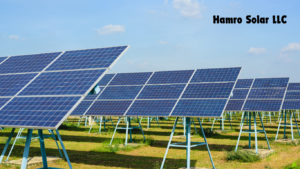When the temperature drops, your outdoor plans don’t have to come to a halt. Whether you’re hosting a backyard party, planning a wedding, or managing a construction site, renting outdoor heaters can keep your space comfortable and inviting. Searching for “rent outdoor heaters” brings up a variety of options, but how do you choose the right one for your needs? In this comprehensive guide, we’ll walk you through everything you need to know about renting outdoor heaters—from types and benefits to costs, safety tips, and where to find them. Let’s heat things up!
Why Rent Outdoor Heaters?
Outdoor heaters are a game-changer for extending the usability of your outdoor spaces, especially during cooler months. But why rent instead of buy? Here’s why renting outdoor heaters makes sense for many situations:
Cost-Effective Flexibility
Purchasing a high-quality outdoor heater can set you back hundreds of dollars, plus you’ll need to store and maintain it. Renting allows you to access top-tier equipment for a fraction of the cost, only when you need it.
Seasonal or One-Time Use
If you’re hosting a single event—like a fall wedding or a holiday gathering—renting eliminates the need for a long-term investment. You get the warmth without the commitment.
Variety of Options
Rental companies offer a range of heater types and sizes, letting you choose the perfect fit for your specific occasion or project, whether it’s a small patio gathering or a large tented event.
No Maintenance Hassles
When you rent outdoor heaters, the rental company handles upkeep and repairs. You simply use them and return them—no worrying about winter storage or annual servicing.
Renting outdoor heaters is a practical solution for anyone looking to enjoy the outdoors without shivering through the experience.
Types of Outdoor Heaters You Can Rent
Not all outdoor heaters are created equal. Depending on your needs, you’ll find several types available for rent. Here’s a breakdown of the most common options:
Patio Heaters
- Description: Tall, freestanding units with a burner on top that radiates heat downward in a circular pattern.
- Fuel: Typically propane, though some use natural gas.
- Best For: Small to medium gatherings, patios, or open spaces like backyards.
- Heat Range: Covers a 10-20-foot diameter, depending on the model (around 40,000-48,000 BTUs).
Forced-Air Heaters
- Description: Powerful units that blow warm air across large areas, often used with ducting.
- Fuel: Propane, natural gas, or diesel.
- Best For: Large events in tents, construction sites, or open industrial spaces.
- Heat Range: Can heat thousands of square feet, with models ranging from 80,000 to 250,000 BTUs.
Infrared Heaters
- Description: Emit radiant heat that warms objects and people directly rather than the air.
- Fuel: Electric, propane, or oil-fired options.
- Best For: Spot heating, covered patios, or areas where air movement needs to be minimized (e.g., drying paint).
- Heat Range: Focused heat up to 15-20 feet, depending on wattage or BTUs.
Electric Heaters
- Description: Plug-in units that provide clean, fume-free heat.
- Fuel: Electricity (115V for small units, 480V for larger ones).
- Best For: Indoor-outdoor transitions, covered patios, or areas with strict ventilation requirements.
- Heat Range: Smaller units (1.5kW) heat 100-200 sq. ft.; larger ones (136k BTUs) cover bigger spaces.
Ground Heaters
- Description: Hydronic systems that circulate heated fluid through hoses to warm surfaces.
- Fuel: Diesel or propane.
- Best For: Thawing frozen ground or curing concrete on construction sites.
- Heat Range: Can cover up to 6,000 sq. ft. of surface area.
Each type has its strengths, so your choice will depend on the size of your space, the event’s purpose, and available power sources.
Benefits of Renting Outdoor Heaters
Renting outdoor heaters offers more than just warmth. Here’s why they’re a smart choice:
Enhanced Comfort
Keep guests cozy at a party or workers productive on a chilly job site. Heaters create a welcoming environment, no matter the weather.
Extended Outdoor Season
Don’t let fall or winter stop you from enjoying your patio or hosting events. Renting heaters lets you use outdoor spaces year-round.
Versatility
From elegant weddings to rugged construction projects, outdoor heaters adapt to any setting, providing targeted or widespread heat as needed.
Energy Efficiency
Modern rental heaters are designed to maximize heat output while minimizing fuel or energy use, saving you money during your rental period.
Professional Support
Rental companies often provide setup, delivery, and usage guidance, ensuring you get the most out of your heaters without guesswork.
With these benefits, renting outdoor heaters becomes an easy decision for both personal and professional needs.
How to Rent Outdoor Heaters: A Step-by-Step Guide
Ready to rent outdoor heaters? Follow these steps to make the process smooth and stress-free:
1. Assess Your Needs
- Space Size: Measure the area you want to heat (square footage or diameter).
- Event Type: Is it a casual gathering, a formal event, or a work project?
- Duration: How many hours or days will you need the heaters?
2. Research Local Rental Companies
- Search online for “rent outdoor heaters” plus your city (e.g., “rent outdoor heaters Denver”). Check sites like United Rentals, The Cat Rental Store, or local party rental businesses.
- Look for companies with good reviews, a variety of heater options, and clear pricing.
3. Choose the Right Heater
- Match the heater type to your needs (e.g., patio heaters for small events, forced-air for large tents).
- Confirm fuel availability—do you have propane tanks or electrical outlets on-site?
4. Get a Quote
- Contact the rental company for pricing. Ask about delivery fees, setup costs, and fuel charges (some include propane, others don’t).
- Typical costs: $50-$100/day for patio heaters; $150-$300/day for forced-air or ground heaters.
5. Book and Schedule Delivery
- Reserve your heaters in advance, especially during peak seasons like fall or winter.
- Arrange delivery and pickup times that align with your event or project schedule.
6. Set Up and Test
- If the company doesn’t handle setup, follow their instructions to position and test the heaters before your event starts.
By planning ahead, you’ll ensure your outdoor space stays warm and functional.
Where to Rent Outdoor Heaters
Finding a reliable rental source is key. Here are some top options to explore:
National Equipment Rental Companies
- United Rentals: Offers a wide range of heaters, from electric to diesel-fired, ideal for construction or large events.
- The Cat Rental Store: Specializes in forced-air and ground heaters, perfect for industrial use.
Home Improvement Stores
- The Home Depot: Some locations rent patio heaters alongside other outdoor equipment. Check availability with their rental department.
Local Party and Event Rentals
- Companies like Area Rental & Sales (Wisconsin) or Del Rey Party Rentals (Los Angeles) focus on patio heaters for events, often including propane and setup.
Online Marketplaces
- Sites like RentalHQ.com connect you with local ARA-affiliated stores offering patio heaters and more.
Start with a quick search for “rent outdoor heaters near me” to find providers in your area, then compare inventory and pricing.
How Much Does It Cost to Rent Outdoor Heaters?
Cost is a big factor when deciding to rent outdoor heaters. Prices vary based on heater type, rental duration, and location. Here’s a breakdown:
Patio Heaters
- Daily Rate: $50-$100
- Weekly Rate: $150-$300
- Extras: Propane may add $20-$50 per tank (5-9 hours of use).
Forced-Air Heaters
- Daily Rate: $100-$250
- Weekly Rate: $400-$800
- Extras: Fuel costs (propane/diesel) and ducting fees.
Infrared Heaters
- Daily Rate: $75-$150
- Weekly Rate: $200-$400
- Extras: Electric models have no fuel cost but require power access.
Electric Heaters
- Daily Rate: $40-$100 (small units); $150-$300 (large units)
- Weekly Rate: $120-$500
- Extras: Minimal, assuming you have electricity.
Ground Heaters
- Daily Rate: $200-$400
- Weekly Rate: $800-$1,500
- Extras: Fuel costs can add $50-$100/day.
Additional fees might include delivery ($50-$100), setup ($25-$75), and deposits. Always request a detailed quote to avoid surprises.
Safety Tips for Using Rented Outdoor Heaters
Safety is paramount when using outdoor heaters. Follow these guidelines to keep everyone warm and secure:
Placement
- Keep heaters on flat, stable surfaces away from flammable materials (e.g., curtains, dry leaves).
- Maintain a 3-5-foot clearance around patio heaters and 10 feet for forced-air units.
Ventilation
- Use propane or gas heaters in well-ventilated areas to avoid carbon monoxide buildup.
- Never use fuel-fired heaters indoors unless ducted properly.
Operation
- Read the rental company’s instructions before lighting or plugging in.
- Check for leaks in propane lines (use soapy water to spot bubbles).
Supervision
- Never leave heaters unattended, especially around kids or pets.
- Turn off heaters when not in use to conserve fuel and reduce risks.
Emergency Preparedness
- Keep a fire extinguisher nearby, just in case.
- Know how to shut off the heater quickly if something goes wrong.
Most rental heaters come with safety features like tip-over switches or auto shut-offs—confirm these are functional before use.
Common Uses for Rented Outdoor Heaters
Outdoor heaters are incredibly versatile. Here are some popular scenarios where renting them shines:
Parties and Events
- Weddings: Keep guests warm under a tent or on an open lawn.
- Birthdays: Extend patio season for evening celebrations.
- Corporate Gatherings: Ensure comfort at outdoor team-building events.
Construction and Work Sites
- Thawing Ground: Prepare frozen soil for digging or concrete pouring.
- Worker Comfort: Maintain productivity in cold weather.
Home Use
- Backyard Hangouts: Host movie nights or barbecues year-round.
- Temporary Heating: Bridge the gap if your home heater fails in winter.
Special Projects
- Drying Processes: Speed up paint or concrete curing in cool conditions.
- Animal Care: Keep livestock or pets warm in outdoor shelters.
No matter the occasion, renting outdoor heaters provides a tailored solution.
Pros and Cons of Renting vs. Buying Outdoor Heaters
Should you rent or buy? Here’s a quick comparison:
Renting Pros
- Lower upfront cost.
- Access to a variety of models.
- No storage or maintenance required.
- Ideal for short-term needs.
Renting Cons
- Recurring costs for frequent use.
- Limited availability during peak seasons.
- Dependence on rental company schedules.
Buying Pros
- Long-term savings if used often.
- Always available when you need it.
- Customizable to your space.
Buying Cons
- High initial investment ($200-$1,000+).
- Ongoing maintenance and storage.
- Less flexibility for different needs.
For occasional use, renting outdoor heaters is usually the smarter choice.
Tips for Getting the Most Out of Your Outdoor Heater Rental
Maximize your rental experience with these practical tips:
Plan Ahead
- Book early, especially in fall or winter, to secure your preferred heaters.
- Order extras (e.g., additional propane tanks) to avoid running out mid-event.
Optimize Placement
- Position patio heaters where people gather most.
- Use windbreaks (e.g., tents, tarps) to trap heat and boost efficiency.
Monitor Fuel
- Track propane or diesel usage to avoid interruptions.
- Ask the rental company how long a tank or charge lasts.
Test Beforehand
- Run the heaters a day before your event to ensure they work and heat adequately.
Bundle Rentals
- Combine heaters with tents, tables, or chairs from the same company for potential discounts.
A little preparation goes a long way toward a warm, successful event or project.
Frequently Asked Questions About Renting Outdoor Heaters
Got questions? We’ve got answers:
How Many Heaters Do I Need?
- For patios: One 40,000 BTU heater per 200-300 sq. ft.
- For tents: One forced-air heater (80,000+ BTUs) per 1,000 sq. ft., adjusted for ceiling height.
How Long Does Propane Last?
- A 20-lb. tank lasts 5-9 hours on a patio heater, depending on the heat setting.
Can I Use Heaters in a Tent?
- Yes, but opt for forced-air or electric heaters with proper ducting or ventilation. Avoid open-flame patio heaters inside unless well-vented.
Are Electric Heaters Cheaper to Run?
- Yes, if you have access to electricity, they eliminate fuel costs, though larger units require higher voltage.
What’s the Best Heater for Windy Conditions?
- Infrared heaters work best, as they heat objects directly, not the air that wind can blow away.
These answers should help you make informed decisions when you rent outdoor heaters.
Rent Outdoor Heaters: Final Thoughts
Renting outdoor heaters is a simple, effective way to keep your outdoor spaces warm and usable, no matter the season or occasion. From cozy patio gatherings to large-scale construction projects, the right heater can make all the difference. By understanding your options, planning ahead, and prioritizing safety, you’ll enjoy a comfortable experience without breaking the bank.
Ready to rent outdoor heaters? Start by searching for local providers, comparing quotes, and booking the perfect units for your needs.




